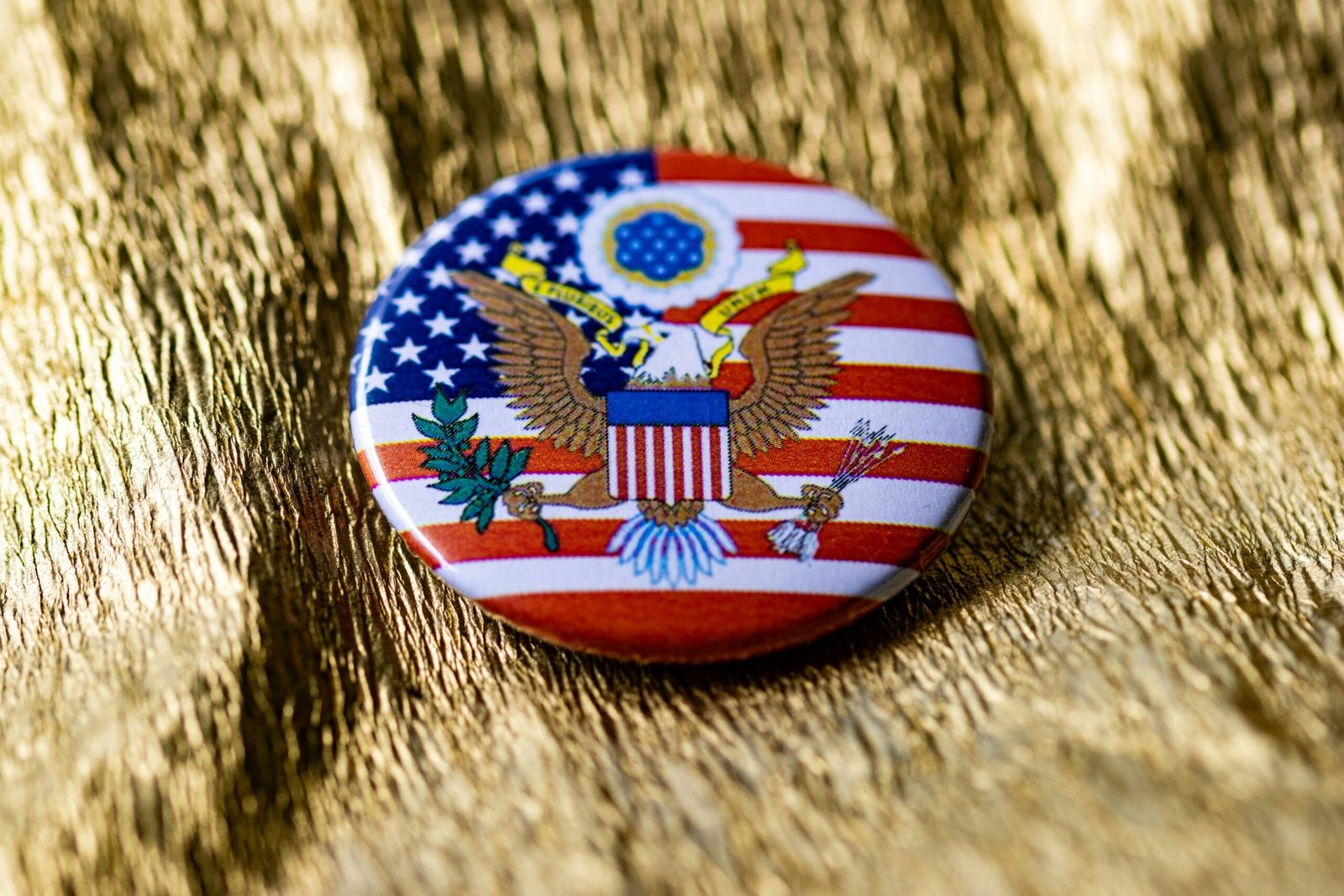“What’s one challenge you’ve faced when trying to source American-made products for your business or personal use? How did you overcome this obstacle?”
Here is what 15 thought leaders had to say.
Pella Windows Prove American Quality Saves Money

The biggest challenge I’ve faced is sourcing American-made windows at competitive prices. Most homeowners in Chicago want quality products but balk when they see the price difference between domestic and imported options.
My breakthrough came with Pella windows, manufactured right here in Iowa. When a client in Lincoln Park was renovating their 1920s home, they specifically wanted American-made products to match the home’s heritage. I showed them how Pella’s Iowa-made windows would actually save them $800 annually on energy costs compared to cheaper imports, making the higher upfront cost worth it.
I overcame the pricing objection by creating a total cost analysis spreadsheet for customers. I track energy savings, warranty coverage, and replacement timelines over 20 years. This shows clients that American-made windows like Pella typically cost 15-20% less over their lifetime despite higher initial prices.
The key is presenting the math upfront. Most people only see sticker shock, but when you break down energy savings and durability differences, American-made becomes the obvious choice for long-term value.
Steve Mlynek, CEO & Founder, HomeBuild Windows, Doors & Sliding
Ohio Partnership Solves Tire Recycling Supply Chain

As someone who runs a tire recycling business, I’ve struggled to find American-made processing equipment that could handle the volume we needed. Most rubber shredding and granulation machinery came from European manufacturers with 12+ week lead times and complex import logistics.
The real challenge hit when we needed specialized binding agents for our rubber surfacing products. Nearly all adhesive suppliers were sourcing from overseas, which created quality control issues and unpredictable delivery schedules that hurt our project timelines.
I solved this by partnering directly with a small chemical manufacturer in Ohio that was willing to develop custom formulations for our specific applications. Instead of competing with large orders from overseas buyers, we became their dedicated partner for eco-friendly rubber binding solutions.
The key was offering them consistent volume commitments and being flexible on specifications. Now we get priority manufacturing slots and products designed specifically for recycled rubber applications, which has actually improved our final product quality compared to generic overseas alternatives.
Landon Olson, Mechanical Engineer, Replay Surfacing Inc.
Detective Work Uncovers Domestic Electronics Sources

Finding American-made products, especially electronics, can be seriously tough. In my case, I wanted to source locally made components for a tech project to support domestic companies and reduce shipping times. The biggest hurdle was the scarcity and higher prices compared to imported options. It’s like, you’re always weighing whether the extra cost is justifiable.
What worked for me was getting really familiar with niche online forums and American manufacturers’ directories. It’s kinda like detective work—scouting for companies that shared their manufacturing details and then directly reaching out to verify their claims. And don’t underestimate small trade shows; they can be gold mines for connections and getting better deals directly from the producers. Remember, persistence is key, and often the effort pays off by fostering stronger local industry ties and sometimes even leading to better quality products.
Alex Cornici, Marketing & PR Coordinator, Magic Hour AI
Engrave Ink Builds Artisanal American Supply Chain

Once we had made the decision to source American-made products for Engrave Ink, the difficult challenge was finding reputable suppliers who could match our expectations of craftsmanship and sustainability. One major challenge we faced included the issues around scalability with many U.S. manufacturers, particularly with higher production costs tied to sourcing domestically. This has especially impacted our selections in terms of some of the unique materials available to us such as some woods and metals to custom engrave as well as some frequent difficulty in finding reliable suppliers to ship quality materials consistently.
In response to the challenge, we’ve made adjustments to focus on building relationships with smaller, more artisanal suppliers and manufacturers who have the capabilities, reliability, quality products and are aware of what it really means to be a high-end and custom manufacturer. In fact, we went as far to actually visiting some of their facilities to understand their processes and product qualifications as well as investing time with them to fine-tune certain materials as well as introducing them to new suppliers to help them become more qualified for us. With these factors in place and built-up over time, we were able to develop a more sustainable supply chain with certain suppliers and manufacturers who aligned better with our brand. In short, we are very pleased to have a sustainable supply chain to deliver our high-quality and unique products to our customers while also remaining committed to sourcing American-made products as well as values of craftsmanship and quality that form the core mission of Engrave Ink.
Hailey Rodaer, Marketing Director, Engrave Ink
Rigorous Vetting Ensures American Product Consistency

The inconsistency of quality standards was one of the challenges that I encountered when sourcing American-made products for my business. Most manufacturers, especially small to mid-sized companies, are dedicated to making quality products, yet due to inconsistency in their processes, there was a variation in what I received. It was a major problem when I was making campaigns or producing content that relied on displaying these products with assurance. The inconsistency usually implied that I could not assure the customers that they would get the same experience with the product as I provided in my content.
To address this, I have developed a rigorous vetting procedure and have developed close, direct connections with the manufacturers. I also visited the factories physically, and this gave me an opportunity to observe their production process and evaluate their quality control measures. Also, I demanded greater visibility in the manufacturing process, where I demanded samples of every batch before it could be approved. By doing this, not only did I manage to keep the quality, but I also got an idea of how they operate, and I could be assured of consistency in my campaigns.
Khris Steven, Content marketer, SEO and Automation expert / Founder, KhrisDigital Marketing
Local Networks Reveal True American Manufacturing Sources

One of the biggest challenges I’ve faced when trying to source American-made products, both for Zapiy.com and in my personal life, is the lack of transparency and accessibility in the supply chain. You’d be surprised how often a product is marketed as “American-made,” but when you dig deeper, key components or materials come from overseas. It’s not always intentional misrepresentation — sometimes, it’s just a fragmented supply chain that makes true origin hard to trace.
For our business, we explored sourcing U.S.-made hardware accessories to complement our software — small but meaningful items that reflected our brand values around supporting local economies. But navigating that process was frustrating. Many manufacturers either didn’t have the capacity for small-batch orders or lacked clear, verifiable supply chain information.
We overcame this by shifting how we approached sourcing. Instead of starting with product catalogs, we started with local business networks and regional manufacturing directories, even attending small industry events focused on American-made goods. It was more time-intensive upfront, but it allowed us to connect directly with smaller, often family-run operations where we could have honest conversations about materials, sourcing, and production practices.
That extra effort paid off — we found partners who aligned with our values and could deliver both quality and transparency. It reinforced for me that if you care about sourcing domestically, you can’t rely solely on Google searches or polished marketing. You have to be willing to dig deeper, build relationships, and sometimes adjust your expectations or product designs to fit what’s realistically available.
It’s not always the easiest route, but when done right, it’s worth it — for your brand, your customers, and the communities you’re supporting.
Deceptive Labels Trap American-Made Product Buyers

The issue with buying American-made products comes down to misleading origin labels. I ran into this with a backpack I bought that was stamped “Made in USA.” The entire branding was a push on that message, including the design of a hang tag, as well as the message on the web site. I purchased it at 210 dollars because I wanted to stimulate the local production. A few weeks after that, I read an article that named the brand in a class action over deceptive labeling. Turns out the materials were imported from Vietnam and the bags were only partially assembled in California.
This is why I now pay a lot more attention to the way manufacturing claims are posed by companies. When I intend to make larger purchases, I re-check product listings twice, browse the FAQ page of companies and sometimes even contact them.
Caleb Johnstone, SEO Director, Paperstack
Strategic Partnerships Expand American Product Access

Sourcing American-made products can be challenging due to limited options, higher costs, and consumer preference for international alternatives. Many manufacturers focus on premium items, making it difficult to find affordable choices. To address this, businesses can form strategic partnerships with local manufacturers and distributors, expanding their access to a broader range of products and enabling better pricing through exclusive deals and collaborative relationships.
Mohammed Kamal, Business Development Manager, Olavivo
Detroit Craftsmanship Transforms Rental Business Model

As someone who’s run businesses from limousines to short-term rentals, my biggest American-made sourcing challenge came when furnishing my Detroit properties. I needed durable, stylish furniture that could withstand constant guest turnover while maintaining that authentic Detroit industrial aesthetic.
The obstacle hit hard when I was sourcing custom neon signs for my business logo – overseas manufacturers quoted 60% less, but quality was inconsistent and shipping times were unpredictable. With guests arriving weekly, I couldn’t afford delays or signs that would burn out after a few months.
I solved this by partnering directly with a local Detroit neon artist who understood the city’s vibe. Yes, it cost more upfront, but these signs have become the most talked-about feature in my guest reviews. The local craftsman also helped me source reclaimed wood from Detroit’s historic buildings for custom furniture pieces.
The game-changer was realizing that “Made in America” became part of my marketing story. Guests specifically book my properties because they appreciate authentic Detroit craftsmanship and local partnerships. What started as a sourcing challenge turned into a competitive advantage that justifies premium pricing.
Sean Swain, Company Owner, Detroit Furnished Rentals LLC
Clustered Orders Secure Better American Manufacturing Prices

One significant problem I encountered sourcing American-made products was finding reasonably priced products in consistent quality. As Agility Writer’s founder, I needed products that reflected a high quality standard but did not drain my small business budget. American-made products command a higher price typically due to higher labor costs, and in some cases, when working with smaller manufacturers, the price could raise dramatically. Additionally, suppliers do not have flexibility consistent with smaller companies for volume and customization.
To solve for this problem, I would source from smaller, specialized manufacturers directly who could create quality at scale. The most efficient means I discovered part of the sourcing process was clustering orders to get better pricing and long lead times. Also, the use of Negotiated Terms and the guarantee of repeat business improved pricing and material delivery. This hands-on approach revealed a wider network of suppliers who could provide the specifications I needed without sacrificing quality. I now have the ability to shore up American-made products that meet my business` needs and meet my budget considering potential impact on the environment when sourcing. This approach is substantially more effective for a sustainable supply chain for small business.
Adam Yong, SEO Consultant & Founder, Agility Writer
Religious Craftsmen Solve Judaica Sourcing Challenges

I’m the founder of a high-end Judiaca luxury brand, jluxury.com and since we are focused on Judiaca it has been challenging to find professionals that are able to cater their work to the Jewish community.
Even though they had all the professional capabilities in terms of experience and skills they lacked knowledge of the symbolism and nuances in the artwork and other religious items we needed.
The hardest part wasn’t actually finding skilled workers, it was finding people who understood why the details actually mattered.
Also, with politics there has been a backlash against Judiaca that made it very challenging to source our products. We really had to work to find vendors that didn’t feel like it was against their political views. No easy solution here, just need to find the right people.
One other ‘hack’ was filtering for religious craftsman that had a more intimate understanding of our clients and items.
The last tactic that has worked for us was by providing super specific examples of the artwork and items we wanted– this meant going through multiple rough drafts and mockups before they got it right.
Now that we have these relationships built up– we’ve found it easy to source through American workers.
Menachem Shemtov, Jluxury Luxury Judiaca Owner, Director of Chabad Georgetown & Chabad Young Professionals | Rabbi at the Pentagon, Jluxury
Direct Manufacturer Relationships Secure American Networking Equipment

One of the biggest challenges I’ve faced when trying to source American-made products was finding reliable, high-quality networking equipment that was truly manufactured in the U.S. Many products are advertised as Made in America,but in reality, only final assembly is done domestically, while critical components are still sourced from overseas. This created a lot of confusion and made it difficult to ensure we were genuinely supporting domestic manufacturing.
The issue became more frustrating when dealing with core items like routers, antennas, and signal boosters. These are essential for rural internet setups, and I wanted to ensure quality and durability. However, the limited availability of fully American-made options, combined with higher costs and long lead times, made the process feel like a constant compromise between values and practicality.
To work around this, I started reaching out directly to smaller, U.S.-based manufacturers and suppliers. Many were willing to collaborate, customize orders, and offer better pricing when approached with long-term business in mind. I also adjusted inventory planning to account for longer lead times and began stocking critical components in advance to avoid disruptions.
It took more time, research, and effort than simply ordering from large overseas vendors, but the payoff was worth it. I gained more control over the supply chain, supported local jobs, and felt more confident in the long-term reliability of the equipment.
Sidra Jefferi, Marketing Director, UbiFi
Trade Shows Connect Businesses With American Makers

One challenge I’ve faced when sourcing American-made products is finding manufacturers that align with both my quality standards and my business’s style. The process can be time-consuming, as not all suppliers are transparent or easy to connect with. To overcome this, I started building relationships with trusted local vendors and attending trade shows to discover passionate makers who share my vision. Networking in these spaces not only simplified the search but gave me confidence in the products I offer to my customers.
Ketie Zhang, Founder, Ketie Story
Utah Fabricators Deliver Emergency Tree Equipment Solutions

As a Marine veteran who co-founded Rent A Monkey Tree Service, I’ve struggled to find American-made professional tree care equipment that matches the quality we need for utility line clearance work. Most climbing gear, rigging equipment, and specialized chainsaws come from European manufacturers, which created real problems when we needed quick replacement parts during peak storm season.
The breaking point came when our primary climbing harnesses needed emergency replacement after a winter storm damaged several units. European suppliers quoted 6-8 week lead times, which would’ve killed our ISA certification timeline. I ended up driving to three different equipment dealers across Utah and Nevada, paying 40% above normal rates to piece together American-manufactured gear from smaller companies.
Now I maintain relationships with two Utah-based fabricators who custom-make our rigging hardware and truck equipment. Yes, we pay about 25% more upfront, but when equipment breaks during emergency tree removal jobs, we get same-day replacements instead of waiting weeks for overseas shipments. Our response time guarantees depend on reliable gear availability.
The key was switching from big distributors to direct relationships with local manufacturers who understand our veteran-owned business values. These smaller American companies actually improve their products based on our field feedback, something the overseas giants never offered.
Gregg Nelson, Owner, Rent A Monkey Tree Service
Veteran Workshop Creates Competitive American Rug Collection

As someone who’s been importing rugs for over 20 years, I faced a major challenge when customers started asking for American-made rugs around 2018. The brutal reality was that 95% of quality rugs come from traditional weaving countries like Iran, India, and Turkey – finding skilled artisans in the US who could hand-knot at competitive prices seemed impossible.
I spent months reaching out to small textile workshops across North Carolina and Georgia, but the cost difference was staggering. A hand-knotted 8×10 rug that I could source from our Pakistani partners for $800 would cost $3,200 from American artisans, and the quality wasn’t matching what customers expected from our reputation.
My breakthrough came when I partnered with a veteran-owned workshop in Virginia that specialized in reproduction rugs using American materials but streamlined techniques. Instead of competing on traditional hand-knotting, we focused on machine-tufted rugs with hand-finished edges that could sell for 40% less than fully handmade pieces while still supporting American workers.
Now our “Heritage Collection” represents about 15% of sales, and I’ve learned that transparency about production methods actually builds more trust than trying to replicate overseas pricing. Customers appreciate knowing exactly where their money goes when they choose American-made.
Mina Daryoushfar, CEO & President, Rug Source

